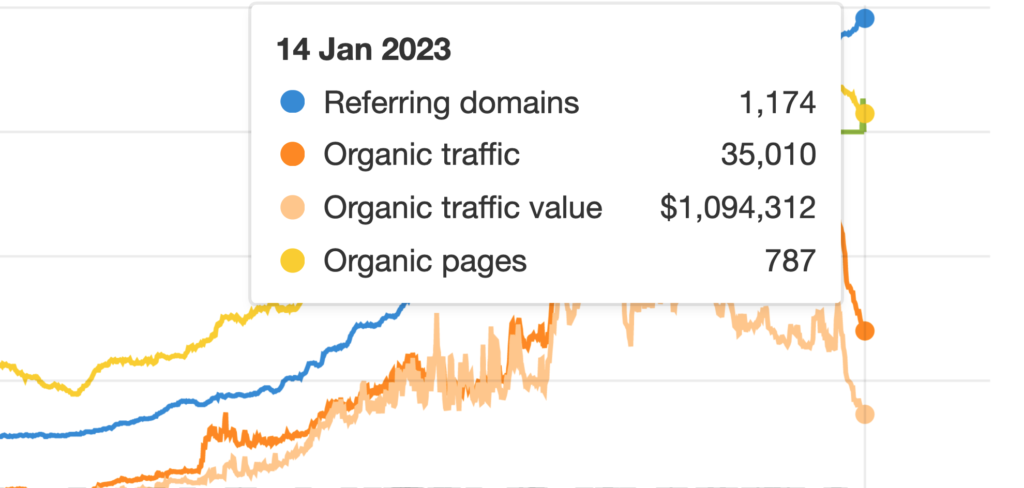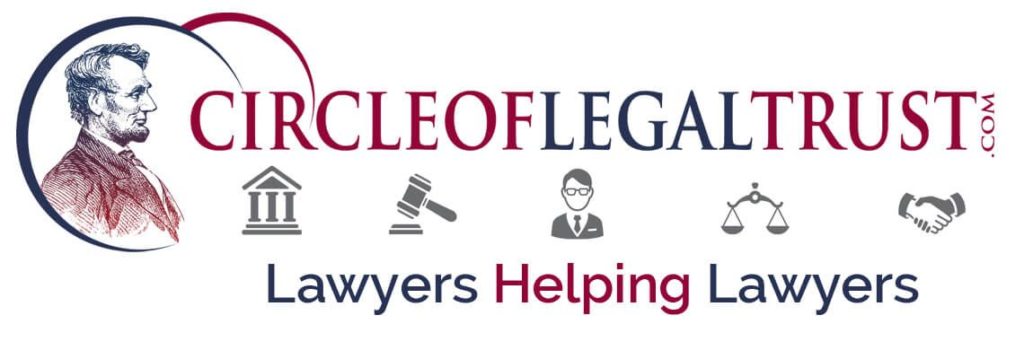The Google Helpful Content Update Is Live – Will It Affect Your Law Firm?

In early August, Google announced its new update launching at the end of the month. On August 25, 2022, Google started rolling out “Helpful Content Update,” which can take up to two weeks to complete. It also published a press release detailing the new update and its purpose.
After going through the Google helpful content update, it seems that Google is looking to move content creators from writing articles they believe will perform well in search engines to creating content specifically for their audience, content that their audience will love.
Circle of Legal Trust helps attorneys and law firms remain compliant with the best search engine optimization techniques, which is why in this blog, we will go over what you need to know about the new update.
Let’s get into it!
Quick Facts about the New Helpful Content Update
Let’s review some quick facts about Google’s helpful content update before diving deep into what Google expects from content creators like yourself.
- Release date: August 25, 2022
- Aim: To discourage content specifically made with SEO in mind rather than providing existing or intended audience value.
- Penalty: The tech giant did not provide detailed information about the update. However, it seems like the update will hit deceiving sites that focus too much on SEO and not on their audience.
- Algorithm: The new update is site-wide, affecting the entire website.
- Languages: The rollout pertains to English sites only for now but will likely expand to other languages.
- Impact: According to the tech giant, Google’s helpful content update will have a meaningful impact on search results. It will affect sites with online-educational materials, entertainment, shopping, and tech-related content.
- Recovery: Any website hit by the new update must review Google’s guidelines and rectify the issue. If your website got hit, it could take several months to recover after making the necessary changes.
What Is the Google Helpful Content Update?
The new helpful content update aims to discourage content creators from producing content aimed at search engines. In its press release, Google states that the update will reward content that offers visitors a satisfying experience. In contrast, sites with content that doesn’t meet readers’ “expectations” will suffer in search results ranking. The word “expectations” may sound confusing initially, but what Google means by that is the content should not be clickbait or search engines first.
Instead, it should focus on the readers. It’s not to say that Google does not want content creators to adopt SEO best practices. They want them to create satisfying content while utilizing SEO, to bring searchers additional value. When writing content, it is essential to ask yourself, “what does the reader want?”. Asking that question every time will help you understand the type of content the new update encourages. Searchers are not looking for search engine strategies or articles within a particular word count. They want their questions answered!
How Does the Google Update Work?
Google uses machine learning algorithms, and the new update is an automated process built into these algorithms. Unhelpful content or content aimed at ranking web pages will send a negative signal to Google, automatically punishing the website.
Preparing for the Google Update
After the news of the recent Google helpful content update, you might have started to worry about the algorithm affecting your website’s ranking that you put your hard work and sweat behind.
We will go over three steps to prepare you for this long-awaited update. If you’re an experienced content writer, you don’t need to worry about Google affecting your website rankings, as you may already be following these three steps.
Focus on Content Transparency
You don’t want your readers to feel unsatisfied after reading your content, so you must always avoid clickbait.
If you’re promising your readers “Top 5 causes of car accidents in the United States”, don’t try to stuff keywords into your article or fill it with irrelevant content. When reading the article, your audience expects the top 5 causes of car accidents based on factual data!
Focus on Your Existing or Intended Audience
The new update wants older and newly launched sites to understand their audience and what they’re looking for.
Having a people’s first approach is highly encouraged. Searchers stumbling across SEO-laden content rather than content that adds value or provides them with the information they are looking for can cause serious harm to a website’s ranking.
Here are some valuable tips to ensure you’re not taking an SEO-centric approach:
- Find your niche and stick with it. Writing content on all sorts of topics will harm your website.
- Create helpful content written by people who can demonstrate first-hand expertise.
- Avoid AI-generated content.
- Your content should answer your reader’s queries rather than forcing them to go to another website for answers.
Focus on Content That Provides Value, Not Ranking on Search Engines
Your content should leave readers feeling satisfied. Although following SEO tips are critical, what stands out is the type of content you generate, content that adds value. You’re doing a great job if people learn something new by reading your content!
If you’re already following these three steps (most experienced content writers do), you don’t need to worry about how the new update will affect your website. Your website’s ranking will most probably increase rather than decrease.
Sacrificing the quality of your content and its readability will harm your website traffic. Churning tons of content so your website can be at the top of the search results is highly discouraged.
What Is Google’s Definition of High-quality Content?
You’ll come across many blog posts that spew all sorts of statistics to sound like they know what they’re talking about, but a simple Google search will expose these false numbers. With the new update, Google wants “high-quality” content, not unhelpful content.
According to Growth Advisor Kevin Indig, it is difficult to say what is happening at this stage. The update is relatively new, and collecting and analyzing data can take some time. However, what is certain is that overly optimized or deceiving sites are most likely to take the hit.
A quick run-through of Google’s official blog will give you an idea of what they consider helpful and high-quality content. Some of these include:
- Information provided in the article must come from trusted, reputable sources.
- The writer must have considerable know-how about the topic.
- The website must not have duplicate articles with slightly varied keywords.
- The article must not have spelling errors, grammatical issues, or factual errors.
- The article must have original content.
- The page must provide value in comparison to other similar pages.
- The blog post must give both sides of the story.
- Content must provide insightful analysis or interesting information.
- Avoid bombarding your content with ads.
Questions a Law Firm Should Ask When Conducting Content Evaluation
You may be confused about creating people-centric content without a search engine-first approach. Some questions can help determine whether you’re producing people-first content.
The following are questions that a law firm website owner should ask themselves:
- Is your content aiming to attract readers or potential clients from search engines?
- Are you uploading bulk content on various topics in the hopes that it may perform well?
- Are you uploading AI-generated content?
- Are you paraphrasing your competitor’s work without adding value?
- Are you producing content based on the latest trends rather than what your audience may prefer?
- Does your content have a preferred word count?
- Does your content answer all the concerns a reader may have?
- Are you producing content in a niche topic area without having the expertise and depth of knowledge to garner search traffic?
- Does your content promise one thing and delivers unhelpful content?
These are crucial questions to help you determine whether your content aligns with the new Google update. If you answered yes to all these questions or even some, you must reevaluate the content produced for your law firm’s website.
Some law firms outsource their content development to reputable SEO agencies, so they must lean on SEO specialists’ advice on reacting to any ranking fluctuations they may experience from the update.
What Does Google Mean by Unhelpful Content Regarding Law Firms?
The main concern with the helpful content update is what Google refers to when they say “unhelpful content.”
A law firm should create content that speaks to its key demographic. For example, a personal injury firm producing content such as “Possible tech features in the new iPhone” (clickbait content) is not really sharing their expertise but simply catering to the latest trends, an SEO strategy highly discouraged by the new update.
The “Possible tech features in the new iPhone” article is an example of unhelpful content for a personal injury law firm. Assuming that there are websites with better content than your law firm’s website, it’s not just unhelpful content; any content on your site will perform poorly in search.
Will Google Punish My Law Firm’s Website for AI-generated Content?
A crucial thing to remember is that although AI-generated content is against Google’s Webmaster Guidelines, the new update is not anti-AI but anti-low-quality content.
According to the new update, as long as the AI produces helpful content and demonstrates first-hand expertise, it is much better than unhelpful or clickbait content.
Elements You Should Consider for Your Law Firm Website to Rank Well in Google’s Search Engine
Here are the key elements that you should consider to help your law firm website rank well in Google’s search engine:
- Produce fresh content and avoid contradictory information.
- Display the qualifications and credentials of your legal team.
- Get mentions and links to increase trustworthiness.
- Update contact information on Google My Business and social media platforms.


